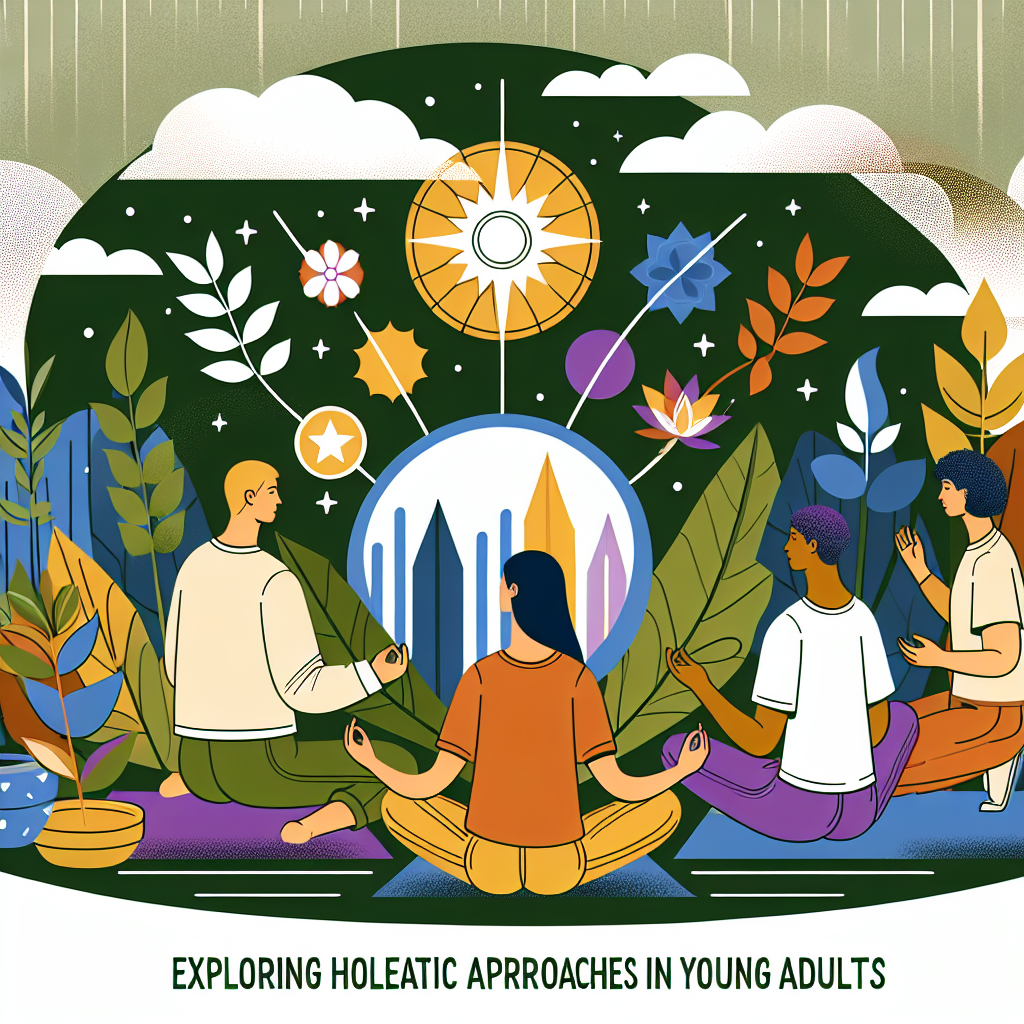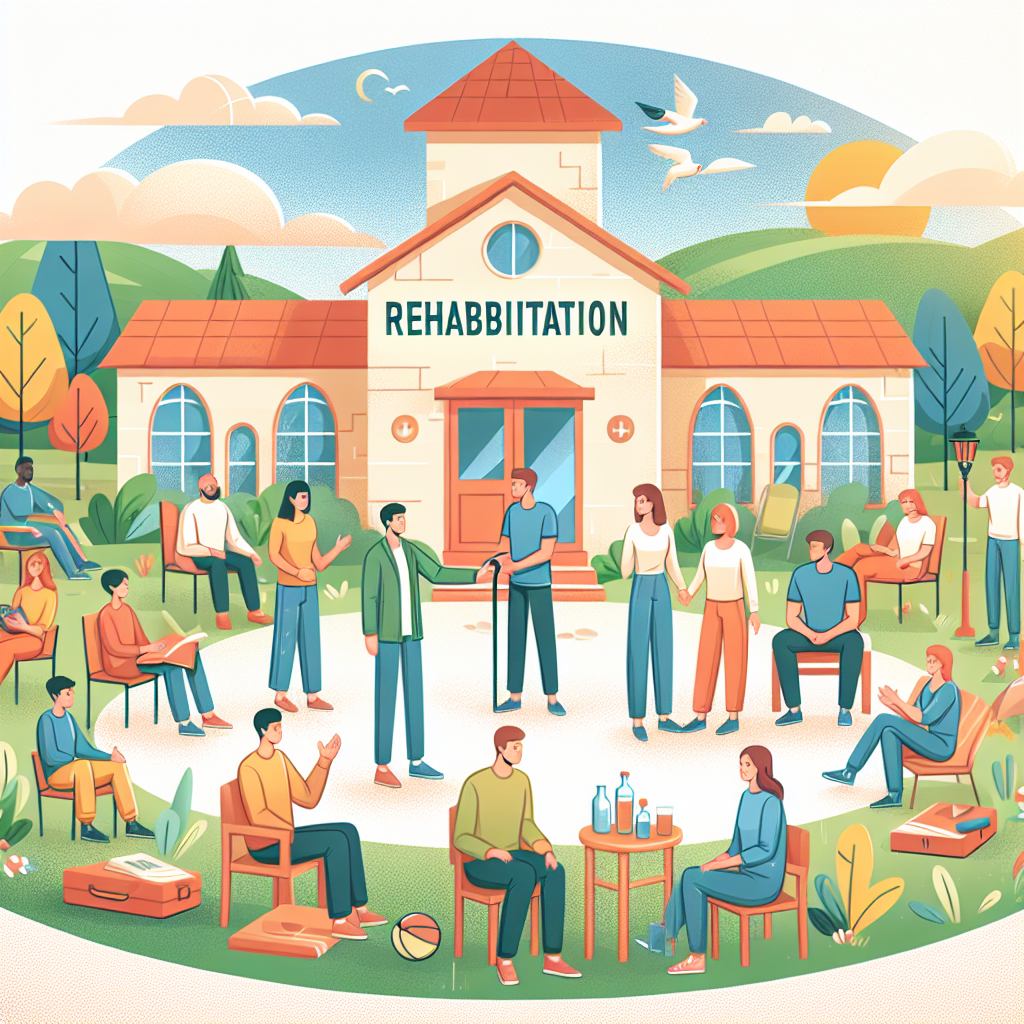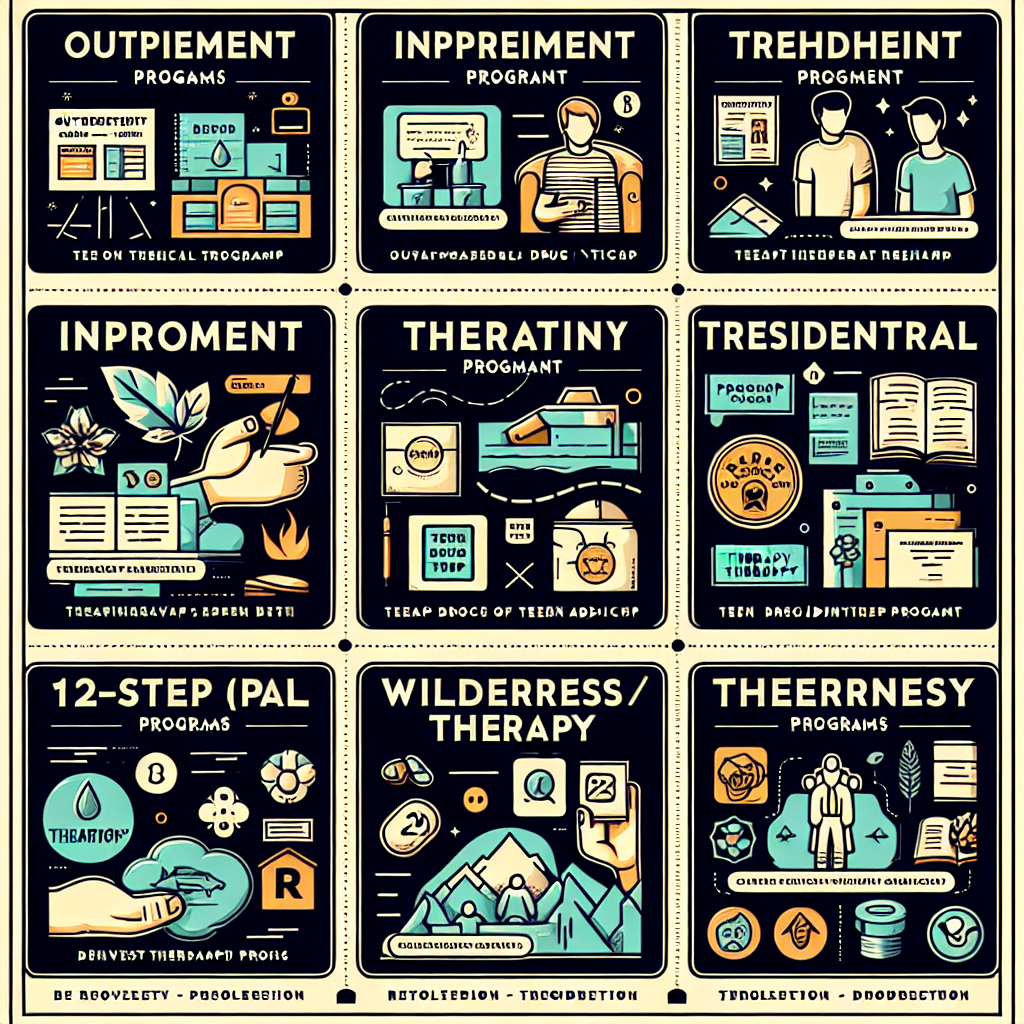-
Table of Contents

“Empowering Recovery Through Wholeness: Holistic Healing for Young Adults”
Introduction
Exploring Holistic Approaches in Young Adult Rehab
In recent years, the landscape of rehabilitation for young adults has evolved significantly, with a growing emphasis on holistic approaches that address the multifaceted nature of addiction and mental health issues. Unlike traditional methods that often focus solely on the physical aspects of recovery, holistic approaches integrate physical, emotional, mental, and spiritual dimensions to foster comprehensive healing. This paradigm shift recognizes that young adults face unique challenges and stressors that require a more nuanced and individualized treatment plan. By incorporating therapies such as mindfulness, nutrition, exercise, art, and community support, holistic rehab programs aim to empower young adults to achieve sustainable recovery and overall well-being. This introduction delves into the principles and benefits of holistic approaches in young adult rehab, highlighting their potential to transform lives and promote long-term health.
Integrating Mindfulness Practices in Young Adult Rehab Programs
In recent years, the landscape of young adult rehabilitation has evolved significantly, with a growing emphasis on holistic approaches that address not just the physical aspects of addiction but also the mental, emotional, and spiritual dimensions. One of the most transformative elements of this holistic paradigm is the integration of mindfulness practices into rehab programs. Mindfulness, the practice of being fully present and engaged in the moment, has shown remarkable promise in helping young adults navigate the complexities of recovery.
Mindfulness practices, such as meditation, yoga, and deep-breathing exercises, offer a powerful counterbalance to the often chaotic and overwhelming experiences that accompany addiction. By fostering a sense of inner calm and self-awareness, these practices enable individuals to better understand their triggers and responses, thereby reducing the likelihood of relapse. For young adults, who are still in the formative stages of their emotional and psychological development, this self-awareness is particularly crucial.
Moreover, mindfulness practices can significantly enhance the effectiveness of traditional therapeutic interventions. Cognitive-behavioral therapy (CBT), for instance, can be greatly augmented by mindfulness techniques. When young adults learn to observe their thoughts and feelings without immediate judgment, they become more adept at identifying negative thought patterns and replacing them with healthier alternatives. This synergy between mindfulness and CBT creates a more robust framework for long-term recovery.
In addition to bolstering traditional therapies, mindfulness practices also offer unique benefits that are particularly relevant to young adults. The transition from adolescence to adulthood is often fraught with stress, anxiety, and uncertainty. Mindfulness provides a toolkit for managing these challenges, promoting emotional resilience and mental clarity. By learning to stay grounded in the present moment, young adults can better navigate the pressures of academic, social, and familial expectations.
Furthermore, the communal aspect of mindfulness practices can foster a sense of connection and support among young adults in rehab. Group meditation sessions, for example, create a shared space where individuals can collectively experience peace and introspection. This sense of community is invaluable, as it helps to combat the isolation and loneliness that often accompany addiction. Through these shared experiences, young adults can build meaningful relationships that support their recovery journey.
The benefits of integrating mindfulness practices into young adult rehab programs extend beyond the individual to the broader community. As young adults develop greater self-awareness and emotional intelligence, they are better equipped to contribute positively to their families, schools, and workplaces. This ripple effect can lead to healthier, more supportive environments that further reinforce the principles of recovery.
Moreover, the skills acquired through mindfulness practices are not limited to the rehab setting; they are lifelong tools that can be applied in various aspects of life. Whether dealing with future stressors, making important life decisions, or simply striving for personal growth, the ability to remain present and mindful is an invaluable asset. This long-term perspective is essential for sustainable recovery, as it empowers young adults to continually evolve and adapt in healthy ways.
In conclusion, the integration of mindfulness practices into young adult rehab programs represents a holistic approach that addresses the multifaceted nature of addiction. By promoting self-awareness, emotional resilience, and community support, mindfulness offers a comprehensive framework for recovery that extends far beyond the confines of traditional treatment methods. As we continue to explore and refine these holistic approaches, we pave the way for more effective and enduring solutions to the challenges of addiction, ultimately fostering a brighter future for young adults on their path to recovery.
The Role of Nutrition and Exercise in Holistic Young Adult Rehabilitation
In the journey of young adult rehabilitation, the integration of holistic approaches has gained significant traction, offering a comprehensive pathway to recovery that addresses the mind, body, and spirit. Among these approaches, the role of nutrition and exercise stands out as pivotal elements that can profoundly influence the rehabilitation process. By understanding and embracing these components, young adults can find themselves on a more balanced and sustainable path to wellness.
Nutrition, often overlooked in traditional rehabilitation programs, plays a crucial role in the healing process. A well-balanced diet provides the essential nutrients that the body needs to repair itself, manage stress, and maintain energy levels. For young adults in rehab, proper nutrition can help stabilize mood swings, reduce cravings, and improve overall mental health. For instance, foods rich in omega-3 fatty acids, such as salmon and walnuts, have been shown to support brain health and reduce symptoms of depression. Similarly, complex carbohydrates like whole grains can help regulate blood sugar levels, providing a steady source of energy and preventing the highs and lows that can trigger emotional distress.
Transitioning to the importance of exercise, it becomes evident that physical activity is not just about building muscle or losing weight; it is a powerful tool for mental and emotional well-being. Regular exercise releases endorphins, the body’s natural mood lifters, which can help combat feelings of anxiety and depression that often accompany the rehabilitation process. Moreover, engaging in physical activities can provide a sense of accomplishment and boost self-esteem, which are critical for young adults striving to rebuild their lives.
Incorporating both nutrition and exercise into a holistic rehabilitation program requires a thoughtful and individualized approach. Each young adult’s needs and preferences must be considered to create a plan that is both effective and sustainable. For example, some may find solace in yoga or meditation, which combine physical movement with mindfulness practices, while others might prefer more vigorous activities like running or team sports. Similarly, dietary plans should be tailored to accommodate individual tastes and any specific health concerns, ensuring that the nutritional changes are both enjoyable and beneficial.
Furthermore, the social aspect of nutrition and exercise should not be underestimated. Group activities, whether it’s a cooking class or a group hike, can foster a sense of community and support among young adults in rehab. These shared experiences can help build strong, positive relationships that are essential for long-term recovery. The camaraderie and mutual encouragement found in these settings can make the rehabilitation journey less isolating and more empowering.
As we consider the broader implications of integrating nutrition and exercise into young adult rehabilitation, it becomes clear that these elements do more than just support physical health. They contribute to a holistic sense of well-being that encompasses emotional stability, mental clarity, and social connectedness. By prioritizing these aspects, rehabilitation programs can offer young adults a more rounded and effective path to recovery.
In conclusion, the role of nutrition and exercise in holistic young adult rehabilitation cannot be overstated. These components are fundamental to creating a balanced and sustainable recovery process that addresses the whole person. By embracing a holistic approach that includes proper nutrition and regular physical activity, young adults can find themselves better equipped to navigate the challenges of rehabilitation and emerge stronger, healthier, and more resilient.
Q&A
1. **Question:** What are some common holistic therapies used in young adult rehab programs?
**Answer:** Common holistic therapies in young adult rehab programs include yoga, meditation, acupuncture, art therapy, and nutritional counseling.
2. **Question:** How does incorporating holistic approaches benefit young adults in rehab?
**Answer:** Incorporating holistic approaches benefits young adults in rehab by addressing the physical, emotional, and spiritual aspects of recovery, promoting overall well-being, reducing stress, and improving coping mechanisms.
Conclusion
Exploring holistic approaches in young adult rehab reveals that integrating physical, emotional, and spiritual therapies can significantly enhance recovery outcomes. These methods, which include mindfulness practices, nutritional guidance, physical exercise, and alternative therapies like acupuncture and yoga, address the whole person rather than just the addiction. By fostering a supportive and comprehensive treatment environment, holistic approaches can improve mental health, reduce relapse rates, and promote long-term well-being, making them a valuable component of modern rehabilitation programs for young adults.



